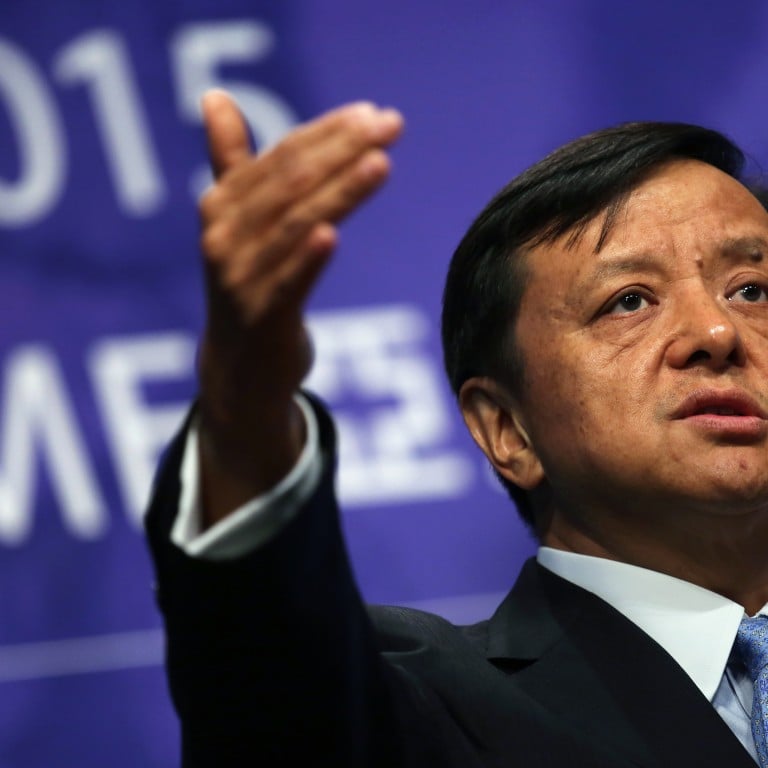
Hong Kong Exchanges and Clearing face tough fight on China commodities connect plan
Hong Kong Exchanges & Clearing (HKEx) is eager to wring value from its US$2.2 billion purchase of the London Metal Exchange but the chances of it emulating in metals its success in connecting with stock traders on the mainland may be slipping away.
Shares in HKEx have risen 65 per cent this year, making it the world’s biggest bourse operator, as volume soared through the stock trading link with Shanghai and a related programme that lets mainland funds buy Hong Kong shares.
But metals are another game: China is speeding up efforts to internationalise its commodity markets all by itself, demand for metals has dwindled and regulatory hurdles are forbidding. The HKEx has had an icy reception from the Shanghai Futures Exchange (ShFE), vital for any commodities link.
"Implementing a ’commodities connect’ is much trickier than with stocks, since you are talking about a physical product with the need to be able to take delivery, as opposed to just a piece of paper," said Arjan van Veen, an analyst at Credit Suisse in Hong Kong.
LME volumes fell 6 per cent last month and it needs new products to boost activity.
Its "mini metals" contracts, one-fifth the size of the main LME contracts and aimed at retail investors, have met a lukewarm response - not a good omen for the more retail-oriented Chinese market.
"Base metals are new to Hong Kong’s markets and new products often take time to develop so we are taking a long-term view with our Asia commodities contracts," HKEx said in a statement to Reuters.
But progress has been limited since it bought the LME in 2012, and it also said its immediate focus was another stock trading link with Shenzhen.
The ShFE said it "has always kept a good relationship with the HKEx and will deepen cooperation with global exchanges".
However, the Shanghai exchange already has a suite of metal contracts and an industry source close to HKEx said the ShFE was "actively hostile" to the "connect" idea. Other industry officials echoed that, including a Shanghai trader close to the ShFE.
ShFE executives have been a far smaller presence than officials from other exchanges at high-profile LME Week Asia events in Hong Kong over the past three years, appearing just once on speakers’ lists, for example.
The ShFE, which runs China’s flagship copper contract, is speeding ahead with its own plans to attract foreign investment flows, preparing to open a new oil contract to foreigners this year.
Backing the ShFE, the Shanghai Free Trade Zone (FTZ) has attracted a bevy of global firms as China liberalises its currency and opens its markets further to the outside world.
"China is showing across multiple areas, not just commodities or metals, that it is very keen to get foreign participation in China via the FTZs. On commodities, one could look at what the ShFE has done with oil as the natural extension for metals," said one of the industry sources.
In the opposite direction, China has more than tripled the number of government-owned firms allowed to trade commodity derivatives overseas, boosting its clout in global markets for metals, energy and agricultural products.
Western interest in Chinese exchanges may be growing as investors seek greater access to price-setting contracts such as Dalian Exchange’s iron ore, said Jeremy Goldwyn, LME dealer Sucden Financial’s head of Asia business development. Another route in for HKEx could be to offer clearing services for mainland contracts, he said.
However, such a restricted role would not match the ambitions of HKEx Chief Executive Charles Li.
The LME has launched a string of initiatives to focus liquidity on a single date each month and plans to offer a discount for trading big volumes.
The market talk is that HKEx plans to list a cash-settled metal futures contract, possibly cross-listing with a mainland exchange, that would be easier to trade against benchmarks in China and the United States, although prices may risk diverging from the physical market.
On the other hand, a physically deliverable product throws up problems around delivery in a different jurisdiction to where it is listed. And Chinese regulators are reluctant to give the LME a licence to open warehouses there.
"It’s medium-term very positive for HKEx, there’s huge potential," van Veen said of the LME acquisition and expanding into China. "But it seems there’s a lot of work still to be done."

